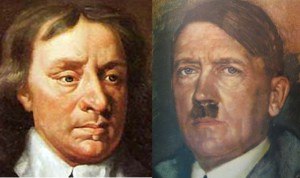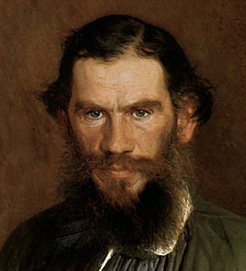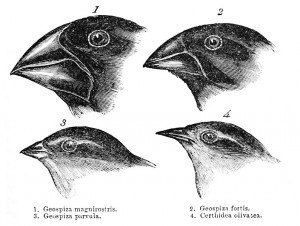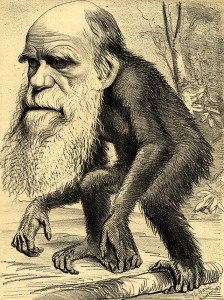Podcast: Play in new window | Download
Concerning European heroes and the nature of their genius.
Imperium, from the section Yockey titled “Tradition and Genius”, page 262:
From Cromwell to Joseph Chamberlain — the beginning and the end of that high political tradition which built the great British Empire, which at its highest point exerted its control over 17/20th of the surface of this earth — England was the example of the possibility of tradition in politics as well as in philosophy, music, and the arts of form. How many men of political genius appeared in the Premiership during these centuries? Only the two Pitts. Nevertheless, England emerged from all the general wars of those centuries with increased power — Thirty Years War, 1618-1648, Spanish Succession War, 1702-1713, Austrian Succession Wars 1741-1763, Napoleonic Wars, 1800-1815, Wars of German Unification, 1863-1871. Only one serious blunder was made during these centuries, the loss of America, 1775-1783. The essence of this tradition was nothing other than applying only political thinking
263
to politics. Cromwell the theologian departed from this only occasionally, and more in words and expressions of sympathy than in actions. His successors in the tradition of Empire-building were not burdened with his heavy theological equipment, which they transformed into cant, a word translatable into no other European language. The technic of cant was what enabled English diplomacy to score continued successes in the world of facts, i.e., the world of violence, of cunning, of sin, while maintaining before itself the attitude of selfless morality. To enrich the country by new possession was thus “bringing civilization” to “backward” races. And so on, through the whole gamut of political tactics.
Yockey’s description of cant combines senses 2a and 4:
1 : affected singsong or whining speech
2 a : the private language of the underworld
b obsolete : the phraseology peculiar to a religious class or sect
c : jargon 2
3 : a set or stock phrase
4 : the expression or repetition of conventional or trite opinions or sentiments; especially : the insincere use of pious words
Cant may not have an equivalent in any other European language, but what Yockey called “the technic of cant” does have an equivalent in Hebrew. Hasbara is variously explained as “explaining”, “public relations”, “diplomacy”, and “propaganda”. It is a relatively new word for one aspect of a long-standing apologetic mechanism which is perfectly characteristic of the jews.
In light of tikkun olam – the blank check jews give themselves to “repair the world” and be “a light unto the nations” – it’s no coincidence that jew-backed British politicians from Cromwell on built an empire based on the “selfless morality” of “bringing civilization” to “backward” races.
Oliver Cromwell, “Lord Protector” of Britain between 1653 and 1658:
Cromwell is one of the most controversial figures in the history of the British Isles, considered a regicidal dictator by historians such as David Hume,[3] a military dictator by Winston Churchill,[4] but a hero of liberty by Thomas Carlyle and Samuel Rawson Gardiner, and a class revolutionary by Leon Trotsky.[5] In a 2002 BBC poll in Britain, Cromwell was selected as one of the ten greatest Britons of all time.[6] However, his measures against Catholics in Scotland and Ireland have been characterised as genocidal or near-genocidal,[7] and in Ireland his record is harshly criticised.[8]
Yockey’s favorable regard for Cromwell may have to do with his favorable regard for Carlyle, the Scottish philosopher he credited with trying to explain Prussianism (proto-National Socialism) to the English.
Though Yockey was either unaware of or discounted the fact, Cromwell discredited himself by officially opening Britain to the jews, literally selling out his “political organism”, the Britons:
As Lord Protector, Cromwell was aware of the Jewish community’s involvement in the economics of the Netherlands, now England’s leading commercial rival. It was this—allied to Cromwell’s tolerance of the right to private worship of those who fell outside evangelical Puritanism—that led to his encouraging Jews to return to England in 1657, over 350 years after their banishment by Edward I, in the hope that they would help speed up the recovery of the country after the disruption of the Civil Wars.
Unofficial recolonization by the jews pre-dated Cromwell. Even sources sympathetic to the jews, such as Cromwell and the Jews and Cromwell and the ‘readmission’ of the Jews to England, 1656, provide more insight into the influence jews had, which Yockey mistakenly attributed purely to British political “genius”. Just one bit from that latter link:
Since before 1640 there had been established in London a small colony of Sephardic Jews, marranos or crypto-Jews, passing as Spanish merchants. The leader of the London group was Antonio Fernandez Carvajal whose history began with his leaving Portugal, possibly for the Canaries; trading interests brought him to London where he settled in the 1630s. By 1643 he had a position of importance, with a house and warehouse in Leadenhall Street; he traded with his own ships to the East and West Indies, Brazil, and other remote regions; his agents operated in all the mercantile centres of Europe.
See also The Murder of Mary Phagan – Part 6, where we see that by 1733, only seven or so decades after Cromwell, the colony of jews in London had grown into an international hub, moving jews and “crypto-jews” in and out of colonies elsewhere.
The “position of importance” enjoyed by jews and crypto-jews in the “British Empire” is not generally acknowleged as such, but it is not invisible either. Concerning Joseph Chamberlain:
He was best known as the leading imperialist of the day in Britain, first in the radical wing of the Liberal party then in the Liberal Unionist faction of the Conservative Party. He was the chief advocate and supervisor of the Second Boer War (1899–1902)
About the Second Boer War:
The complex origins of the war resulted from more than a century of conflict between the Boers and the British Empire, but of particular immediate importance was the question as to which white nation would control and benefit most from the very lucrative Witwatersrand gold mines.
History of the Jews in South Africa:
Jews played a prominent role in the development of the diamond and gold fields
There were Jews among the directors of the Dutch East India Company, which for 150 years administered the colony at the Cape of Good Hope.
I didn’t dig very deep into the Pitts, the father and son Yockey identified as the only political geniuses between Cromwell and Chamberlain. I suppose the oddest thing about Yockey’s favor for them is that they were exponents of the kind of national rivalry and pre-20th century thinking he so disdained.
William Pitt, 1st Earl of Chatham (the elder):
Pitt is best known as the wartime political leader of Britain in the Seven Years’ War, especially for his single-minded devotion to victory over France, a victory which ultimately solidified Britain’s dominance over world affairs. He is also known for his popular appeal, his opposition to corruption in government, his support for the colonial position in the run-up to the American War of Independence, his advocacy of British greatness, expansionism and colonialism, and his antagonism toward Britain’s chief enemies and rivals for colonial power, Spain and France.
He displayed a commanding manner, brilliant rhetoric, and sharp debating skills that cleverly utilized broad literary and historical knowledge.
The younger Pitt’s prime ministerial tenure, which came during the reign of George III, was dominated by major events in Europe, including the French Revolution and the Napoleonic Wars.
Historian Charles Petrie concludes that he was one of the greatest prime ministers “if on no other ground than that he enabled the country to pass from the old order to the new without any violent upheaval”
Returning to Imperium, page 266:
The crass stupidity of Rationalism and Materialism was nowhere more perfectly in evidence than in its attempt to make the word genius into an intelligence term. Naive “tests” were even devised to detect the presence of “genius,” which could be shown by a number. In the Age of Materialism, there was no scruple about weighing and numbering the faculties of the Soul. The fact is that intelligence is the functional opposite of Genius. Intelligence is dissection, genius is creation; one is analysis, the other is synthesis; the first is directed toward the Part, the second toward the Whole. They are related as terrestrial and astral, counting and imagining.
Another example of Yockey’s Grand Dichotomizing. There is more to intelligence than a single dimensional IQ can fairly represent, but its various aspects are correlated and not as exclusive as Yockey contends. In addition to the distinction Yockey notes between dissecting analysts and creative synthesists, there is a distinction between analogizers and memorizers, or mappers and packers. Most thinkers avail themselves of some combination of these traits, though the various mixes may be more or less common.
Page 268:
What precisely are the qualities of Genius in politics, which constitute its maestria [Spanish: mastery, skill] and its inner imperative? First, vision. It sees the possibilities of the Future, and its mind is thereby freed from the trammels which hinder the average man in his thinking. To the prosaic mind, everything which is, represents the end of all development, the Future is to be a mere extension of the Past. Second, spiritual purity: the ordinary man is an eclectic; he carries in his head hundreds of contradictory ideas
269
and beliefs. Not so the creative man in politics: he thinks along one line, and one line only. This gives to his enemies the opportunity of convincing many that he is mentally ill, and they have never failed to do so, from Alexander to the Hero we have seen. But political Genius and its enemies pass into two different categories of History. His name is written in bronze letters as the symbol, meaning, apotheosis, and incarnation of the Spirit of his Age; his enemies turn out on this high plane to have been merely the material with which he hewed his deeds. Third, intensity: the voice of Genius commands; it is harsh, intolerant. It demands and impels upward. Genius is inseparable from the presence of a rushing inner chaos, the prerequisite of formative work. Under a Frederick, or a Charles XII, men will overcome tactical odds of 5-to-l, strategical odds of 30-to-l. But not under Laudon, or the Archduke Charles, or a Grant. These latter need crushing superiority to make up for their inner lack.
Fourth, the sense of a Mission. This vision, purity, and intensity are all brought into an ethical focus: the things which he sees are stamped with Necessity, and he must actualize them. This accounts for the powerfully dramatic influence of a political Genius upon the facts of History. His forceful mission compels everyone to orient himself to it. Everyone is either with him or against him. He becomes the center of the world.
Lastly, an Imponderable. Genius is Life at its highest human potential, and all Life is uncanny, irrational, mysterious. There is something about Genius that makes men rise spiritually. It is the Something that gave Napoleon victory on almost every field, that sat like an eagle on the shoulder of Moltke, as he worked quietly at his task of shaping the form of the 20th and 21st centuries. It may be merely the personality accompanying these extraordinary gifts. It may be a transcendental emanation from the higher organism — it is unknowable, but it is there.
Yockey dedicated Imperium “To the hero of the Second World War”, Adolf Hitler. Though he and his National Socialists confronted the jews and thus flushed them out, his name is not yet written in bronze letters because they prevailed. Europe’s geniuses and heroes cannot be properly judged without accounting for the jews.
Writing in 1924, some 25 years before Yockey, Hitler expressed his own thoughts on culture and race. The contrast is interesting. Hitler comes across as more in tune with reality, more enamored of his people than abstractions. Mein Kampf (Murphy translation), Volume I – A Retrospect, Chapter 11: Nation and Race, page 240:
All that we admire in the world to-day, its science, its art, its technical developments and discoveries, are the products of the creative activities of a few peoples, and it may be true that their first beginnings must be attributed to one race. The maintenance of civilization is wholly dependent on such peoples. Should they perish, all that makes this earth beautiful will descend with them into the grave.
However great, for example, be the influence which the soil exerts on men, this influence will always vary according to the race in which it produces its effect. Dearth of soil may stimulate one race to the most strenuous efforts and highest achievement; while, for another race, the poverty of the soil may be the cause of misery and finally of undernourishment, with all its consequences. The internal characteristics of a people are always the causes which determine the nature of the effect that outer circumstances have on them. What reduces one race to starvation trains another race to harder work.
All the great civilizations of the past became decadent because the originally creative race died out, as a result of contamination of the blood.
That last sentence is the thesis of Arthur de Gobineau’s The Inequality of Human Races, published in 1854.





